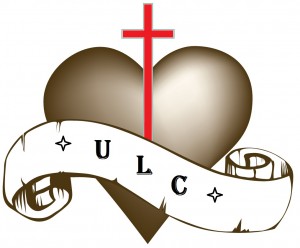
For Christians, the Old Testament of the Bible lays down God’s laws, while the New Testament offers moral guidance. The book of Leviticus is often quoted by believers to justify certain individual choices and has quite a bit to say on what actions are permissible and those that are considered abominations. It is a true undertaking to try and discern what we as modern ministers who get ordained online can take from this book; there are issues of interpretation and relevancy that should be considered. To rehearse such considerations, let us consider tattoos and Leviticus 19:28, which reads “You shall not make any cuttings in your flesh for the dead, nor print any marks upon you: I am the Lord.”
Before we begin, let us first discuss why this conversation is productive. The Universal Life Church is an institution that allows people of all faiths and backgrounds to get ordained online, not just Christians. For members of other faiths and wedding officiants, discussion of Biblical rationale may seem moot, but we disagree with this conclusion. For those of other faiths, taking a respectful and critical approach to religion can serve to connect ministers better with their respective faiths. Many groups have sacred texts, and you can imagine using a similar approach when tackling your own questions for other religions. For wedding officiants, it is likely that you will perform a wedding for someone of faith. It is also likely that as a member of the Universal Life Church, you will be hired because of a perceived post-modernist approach to religion where you take a respectful yet critical approach to belief. So, it is crucial that you learn to take relevant facts into consideration with holy texts to deliver the right perspective. Of course for Christians, Bible study is an important aspect of exercising faith.
The first thing to examine about the verse in Leviticus is the grammatical structure. “You shall not…” sets up a list of two separate actions that are not considered permissible, where each can be split into its own sentence beginning with these three words. Let’s ignore the first statement and focus on the second – “You shall not print any marks upon you.” This seems to denounce the practice of tattooing. We can clearly rule out the argument that this entire verse is just “for the dead,” as that qualification is only present in the decree “You shall not make any cuttings in your flesh for the dead…” but not the part we are examining.
Next, let us consider the relevance of the verse on modern believers. Some would say that Christians are defined by the New Testament, and thus are free from Mosaic Law of the Old. This seems compelling, but there are many things that are only forbade in the Old Testament that Christians would consider still impermissible like selling your children into sexual slavery (Leviticus 19:29), sacrificing children (Leviticus 18:21), and bestiality (Leviticus 18:23). Christians who purport to ignore Mosaic Law in favor of only New Testament law have to explain where they are getting moral judgments to not perform these actions, and it cannot be by individual reasoning, less they question why anyone would consult the Bible for moral judgments instead of societal or individual reasoning, however informed it might be. If you believe God gives us His laws, and believe that bestiality is wrong, it seems you must concede that getting a tattoo is just as wrong.
Finally is interpretation of the language. The terms related to “mark” in original texts are used at different times. In Ezekiel, God commands people in Jerusalem to set a mark upon their foreheads. But here, a different noun is used that happens to translate to “mark,” but means something more temporary when compared to language used in the verse in Leviticus we are examining, so there doesn’t seem to be a conflict.
For Universal Life Church ministers who get ordained online, study of sacred texts is an important way to understand your role as a minister. We see that interpreting words in context reveals our imperfect humanity juxtapose to our notion of the perfect and divine. Whether you perform a wedding as a wedding officiant, become an ordained minister, or are just interested in history and literature, a respectful study of religious books is always encouraged.

